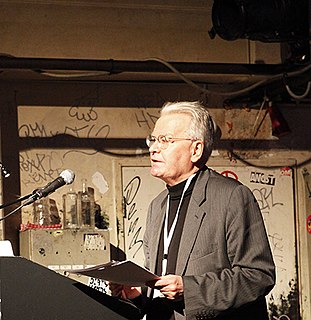A Quote by Daniel Barenboim
When you get to be 103, modernism is a very wide concept.
Related Quotes
Modernism was a big thing for me, coming from a father who was very interested in art, music and culture - and almost always Italian art, music and culture. One good thing about Italians is that culture is part of everyday life. But Modernism is a movement of the past. The idea of a Modernist building as a sculpture set on a pedestal of grass is a part of Modernism that I'm not so crazy about.
I didn't understand the concept that there's a state that won't allow its people to leave or come back whenever they want to, by saying, "It's because we love you." And I never get that - I still don't get that concept. I thought, that's very threatening, and I don't get why you would want to make this experiment with Germany separation.
Modernism in a way, early modernism, for instance, in pictures, was turning against perspective and Europe. And all early modernism is actually from out of Europe, when you think of cubism is African, is looking at Africa, Matisse is looking at the arabesque, Oceania. Europe was the optical projection that had become photography, that had become film, that became television and it conquered the world.



































